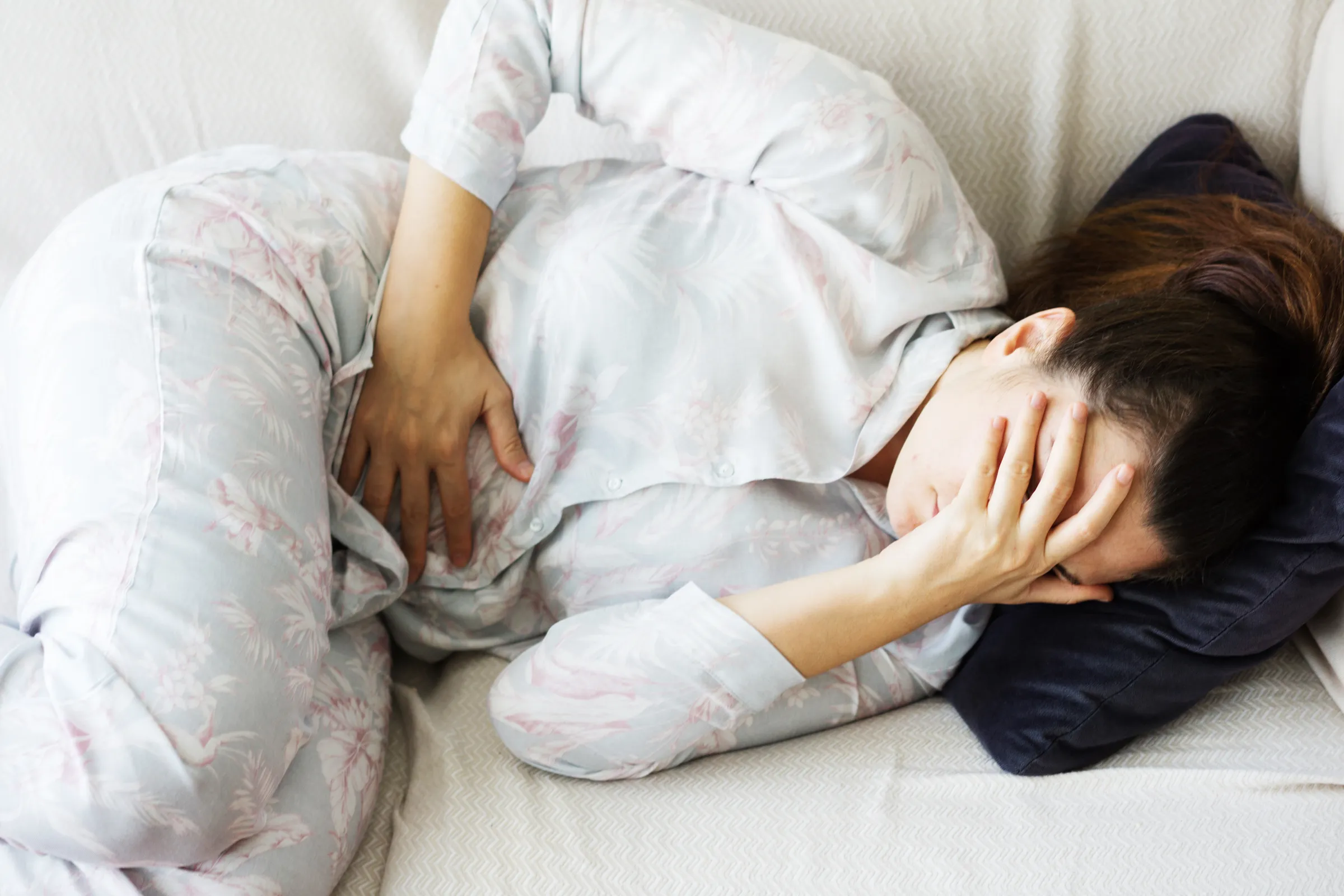Going through a miscarriage is tough, and the first period that follows can bring up a lot of feelings and questions. Your body starts to get back to its usual cycle, but this first period might be a bit different from what you’re used to. It’s normal to see some changes in the flow or how you feel. In this guide, we’ll find out how your body begins to return to its regular cycle, though you might notice this first period seems different from your usual ones.

Contents
- 1 When To Expect First Period After Miscarriage?
- 2 Is The First Period After A Miscarriage Painful?
- 3 What PMS Symptoms Might Come With Your First Period After Miscarriage?
- 4 Frequently Asked Questions
- 4.1 Is the first period after a miscarriage heavier than usual?
- 4.2 How long does miscarriage bleeding last compared to a regular period?
- 4.3 Why might one be more fertile after a miscarriage?
- 4.4 Will breasts return to normal after a miscarriage?
- 4.5 Can tampons be used during the first period after a miscarriage?
When To Expect First Period After Miscarriage?
After a miscarriage, most women can expect their first period to return within four to six weeks. However, there can be variations in timing depending on several factors:
- hCG Levels: This hormone, human chorionic gonadotropin, is produced during pregnancy. Your body won’t resume menstruation until hCG levels return to zero, essentially signaling the end of the pregnancy to your system.
- Completeness of Miscarriage: If the miscarriage wasn’t complete, meaning some pregnancy tissue remains, it might take longer for your period to return.
- Prior Menstrual Cycle: If your periods were irregular before pregnancy, they might be irregular after the miscarriage as well, potentially delaying your first period
Here’s a summary of the timeframe:
- Typical Range: 4-6 weeks after miscarriage
- Possible Delays: Due to the factors mentioned above, it could take longer, especially with later miscarriages.
Is The First Period After A Miscarriage Painful?
The first period after a miscarriage can be more painful than your usual periods for a few reasons. Here’s why:

- Thicker Lining: Sometimes, ovulation doesn’t occur in the cycle following a miscarriage. This leads to a thicker buildup of the uterine lining, which can cause heavier cramps and discomfort when it sheds during your period.
- Unpredictable Flow: The first period after a miscarriage can be heavier or lighter than usual. Heavier flow often translates to more cramping.
It’s important to note that this doesn’t necessarily apply to everyone. Some women experience their first post-miscarriage period without any significant change in pain levels.
Here are some tips for managing cramps during your first period after a miscarriage:
- Over-the-counter pain relievers: Pain relievers like ibuprofen or acetaminophen can help ease cramps.
- Heating pad: Applying a heating pad or hot water bottle to your lower abdomen can provide relief.
- Rest: Getting enough sleep and taking breaks when needed can help your body recover.
- Supportive garments: Wearing a comfortable, supportive bra can help with breast tenderness that may occur during your period.
What PMS Symptoms Might Come With Your First Period After Miscarriage?
After a miscarriage, as your body prepares for your first period, you might experience premenstrual syndrome (PMS) symptoms similar to or more intense than what you’ve encountered before. The hormonal changes your body undergoes after a miscarriage can affect everyone differently, but here are some common PMS symptoms you might notice:

Physical Symptoms
- Cramping: You may experience more pronounced or different cramping patterns than usual due to your uterus adjusting back to its non-pregnant state.
- Bloating and Water Retention: Fluctuations in hormone levels can lead to increased bloating and a feeling of fullness.
- Breast Tenderness: Hormonal changes may also cause your breasts to feel more sensitive or sore than typical before your period.
- Headaches: Some women report experiencing more frequent or severe headaches as part of their PMS.
Emotional Symptoms
- Mood Swings: You might find yourself feeling more emotional or irritable. These mood changes can be more pronounced due to the emotional impact of the miscarriage.
- Fatigue: Increased tiredness and lack of energy are common, which could be more noticeable after a miscarriage.
- Anxiety and Depression: Feelings of anxiety or signs of depression may be more prevalent, particularly if you’re still processing the emotional effects of the miscarriage.
Other Changes
- Appetite Changes: You might notice changes in your appetite, including increased cravings for certain foods or a decreased desire to eat.
- Sleep Disturbances: Difficulty falling asleep or staying asleep can be part of PMS and might be exacerbated by stress and emotional recovery post-miscarriage.
Frequently Asked Questions
Is the first period after a miscarriage heavier than usual?
Yes, the first period after a miscarriage is likely to be heavier than usual. The endometrial lining may be thicker than normal, leading to a heavier flow that can extend the duration of the period.
How long does miscarriage bleeding last compared to a regular period?
Miscarriage bleeding tends to last longer than a regular menstrual period. While miscarriage bleeding can resemble a period, it is usually heavier, may contain clots and tissue, and can appear pink, red, or brown in color.
Why might one be more fertile after a miscarriage?
Some studies suggest that women may be more fertile for a short period after a miscarriage due to increased levels of fertility hormones like estrogen and hCG following a pregnancy loss.
Will breasts return to normal after a miscarriage?
After a miscarriage, changes in the breasts such as discomfort, enlargement, or leaking milk may occur temporarily. These symptoms usually resolve within a week, but using ice packs and a supportive bra can help alleviate discomfort.
Can tampons be used during the first period after a miscarriage?
To prevent infection and ensure health safety, it is advisable to avoid using tampons during the initial period after a miscarriage until a healthcare provider confirms it is safe to do so.
I am a medical student with experience and interest in Women’s health and well-being.